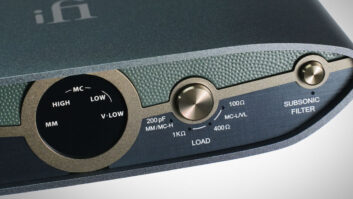Washington D.C. – The consumer electronics industry flamed the music industry’s radio broadcast flag proposal during a Senate Commerce Committee hearing, where the radio industry called various proposed recording restrictions “problematic.”
A draft broadcast flag bill would empower the FCC to select broadcast flag technologies to control unauthorized distribution of digital TV and digital radio content, but CEA warned that content-industry proposals circulated in the Senate “would go well beyond the `mass indiscriminate redistribution’ standard originally set by the Federal Communications Commission [FCC] for the broadcast [TV] flag and would constrain the use of networks inside the home,” said CEA president Gary Shapiro.
The radio flag proposals, Shapiro contended, do not limit themselves “to addressing mass, indiscriminate redistribution of music over the internet” and in fact the existing Audio Home Recording Act (AHRA) of 1992 offers sufficient protection to the music industry. New hybrid satellite-radio/MP3 headphone stereos that store time-shifted broadcasts already comply with the act, he said. These devices let users store satellite-broadcast songs and recall them for later playback by song title, artist name, and genre. “These products will be fully compliant with the Audio Home Recording Act, and royalties will be paid to the music industry. And XM and Sirius will still pay additional millions in performance royalties. So the music industry is getting two streams of royalties already.”
To comply with AHRA, “these products are built so that copies cannot be made of the digital copies,” and the products are designed “so that digital content cannot be uploaded to the Internet,” he continued.
Because satellite-radio broadcasts are already encrypted, Shapiro said, they “cannot be redistributed over the Internet” and don’t need a flag to prevent Internet redistribution. Sirius and XM also confirmed that the stored songs will no longer play if the user’s subscription lapses.
HD Radio receivers would also have to comply with AHRA’s copy-protection strictures and requirement to pay royalties to the music industry on each sale, Shaprio said. No flag should prevent any consumer from using HD Radio or satellite-radio recorders from “recording lawfully acquitted content for private personal use,” as is allowed today, he added.
The Recording Industry Association of America (RIAA), however, worries that digital radio will turn radio into a massive unauthorized, revenue-robbing free-download service. RIAA chairman Mitch Bainwol specifically pointed to technologies that allow broadcasts to “to be automatically captured and then disaggregated, song by song, into a massive library of music, neatly filed in a portable device’s digital jukebox and organized by artist, song title, genre and any other classification imaginable in a manner that substitutes for a sale.” Such products will enable terrestrial and satellite radio to “compete unfairly against download and on-demand subscriptions services that need to obtain an appropriate license” at a fair market price, he said.
“Record labels and artists receive absolutely no payment from the performance of their works on terrestrial over-the-air radio” under existing performance-rights laws, he explained. The labels’ and artists’ lack of performance rights gives them no leverage to force terrestrial stations to negotiate content protection, so the music industry must seek a regulatory remedy, he continued.
Although artists and labels get royalties from satellite broadcasts, the amount of the royalties isn’t market-based but based on compulsory royalty-generating licenses mandated by law, Bainwol pointed out, implying a lack of music-industry leverage to negotiate higher royalty rates or enhanced content protection from the satellite companies.
RIAA sees digital radio as a potentially greater threat than P2P services because digital radio “will offer pristine copies of songs without the threat of viruses and spyware,” Bainwol said. “The ubiquity and ease of use of radios outstrips that of computers, and the one-way method of communication allows individuals to boldly engage in piracy with little fear of detection.”
The radio flag proposed by the music industry would disallow the cherry picking of songs for storage but would allow time shifting, automatic recording by time, program, or channel; and music-purchase options, Bainwol told senators.
Although Bainwol contended that a broadcast radio flag “would in no way affect legacy devices” that receive digital broadcasts, CEA’s Shapiro said it would “constrain the use of networks inside the home,” presumably because networked legacy devices would not be recognized by a flag-compliant digital radio tuner.













